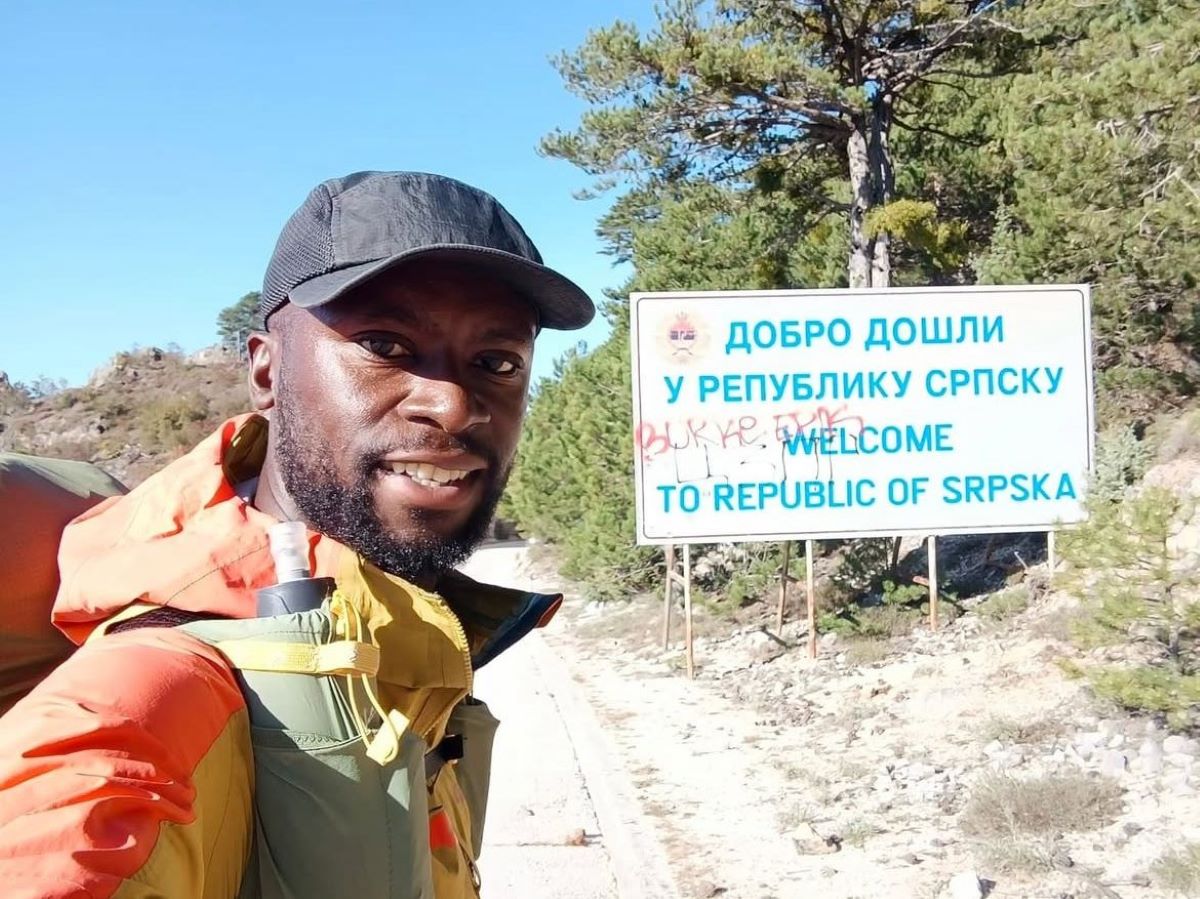On July 24, 2023, Deo Kato set off from Cape Town, South Africa, to run 12,000 kilometers to his hometown in London, England, finally finishing on Sunday, December 22, 2024, with a crowd of over 300 other runners.
His epic journey tells the story of human migration, from Africa to the rest of the world. It is Kato’s belief that everyone has a right to explore and improve the world. His journey started from the Long March to Freedom Exhibition, which honors those who fought for freedom and democracy in South Africa for 350 years.
His journey spanned two continents, running from Cape Town to Egypt, flying to Greece and running to France, before taking a ferry from Calais to the final section of his run to London.
In the end, Kato ran 7,530 miles (12,119k), which is the equivalent of around 288 marathons, and gained 91,620 meters (300,590 feet) of elevation, the equivalent of scaling Everest 10 times. We spoke to him about his journey, how it impacted him, and how he hopes it will inspire others to take action.

Deo Kato outside the Long March to Freedom monument, Cape Town, South Africa, where he began his run to London. Photo: @danielhamshere
Background and Inspirations: Running for Justice
Kato is a Ugandan born runner, run coach, activist, and campaigner. In 2020, following the unlawful killing of George Floyd by police in the United States — and inspired by the 381-day Montgomery Bus Boycott in 1955 and 1956, a large-scale protest against racial segregation in Montgomery, Alabama using the public bus transport system — Kato launched his “381 Days: Running for Justice” campaign, which saw him run a minimum of 10k per day for 381 days to raise awareness of the issues of police brutality and racial discrimination.
In 2021, he ran the London Marathon and was awarded the Spirit of the London Marathon Award. Along with this, as part of the Black Trail Runners group, he along with others completed the Charlie Ramsay Round in Scotland. This is a 58-mile (93k) round comprising 24 summits with a total of 8,686 meters (28,497 feet) of climb.
In 2023, Kato took on his biggest challenge yet — running from Cape Town to London. Kato said that by running from Cape Town to London, he wanted to “highlight the history of human migration.” He elaborated, “In my own experience of living in the U.K. as a Black person who had migrated from Africa, I have experienced racial discrimination. For example, one comment I often get is ‘go back to where you come from.’ So, considering that humanity originates from Africa, I wanted to highlight this as a form of protest and bring awareness to the migration.”
His Journey and Challenges Faced: “More Human Kindness Than We Know”
Over the course of his journey through Africa, Kato was exposed to food poisoning, arrested in Juba, South Sudan, and spent 11 days in prison. He also received acts of human kindness from those in the most remote parts of the continent, who were willing to provide him with cooked meals and shelter.
He shared, “One of the main takeaways I gained from this journey is that there is more human kindness than we know, and that people are willing to help, especially if they understand your background and goal.” Tellingly, he also noted, “In terms of border crossings, I have learnt that the African borders are far more restricted for Africans than they are for Europeans and Americans.”
Despite the various challenges Kato faced running through Africa, he did not find Europe to be any more welcoming, and shared: “In Europe, I faced a new challenge of being racially profiled as an illegal immigrant, so the police were constantly stopping me and asking me to provide my passport and prove that I had entered the country legally. At the European borders, my passport [a British passport] was scrutinized more than other people’s.”
It was this treatment rather than the physical demands of the run that pushed Kato close to the point of quitting. He said: “I felt like quitting when I was in Europe … Things got to be too much to deal with. Even though I knew I was closer to the finish, I kept hoping each new day would be better than the previous day. This was one of the things that kept me going during the darkest moments.”
Inspiring New Perspectives on Migrants
Kato hopes that his run from Cape Town to London, and the observations he made along the way, can help to change how people view human migration, by providing “an insight into the magnitude of the challenges migrants face, especially people from the global south who are forced to leave their country and have to seek safety in a foreign country while crossing land borders.”
This was just one of Deo Kato’s amazing feats of endurance and inspiration, and we hope it won’t be his last. Whilst it might be time for him to recover from such an epic journey, Kato is also making plans to inspire the next generation, by delivering talks about migration in schools. He said, “People within the countries where migrants seek safety must understand that refugees and asylum seekers are also people, trying to navigate life in the best way possible.”
Call for Comments
Were you following Deo Kato’s journey from Cape Town to London?


